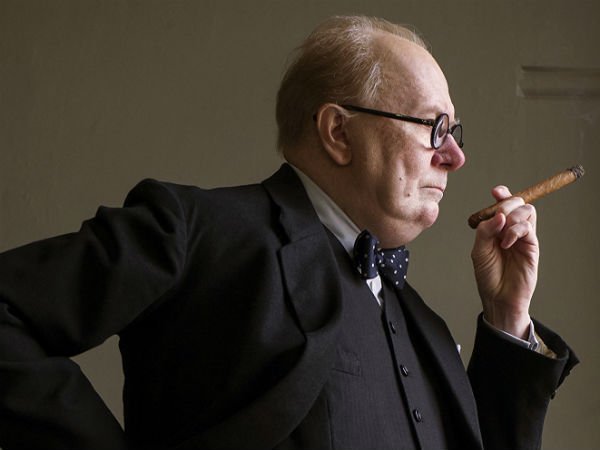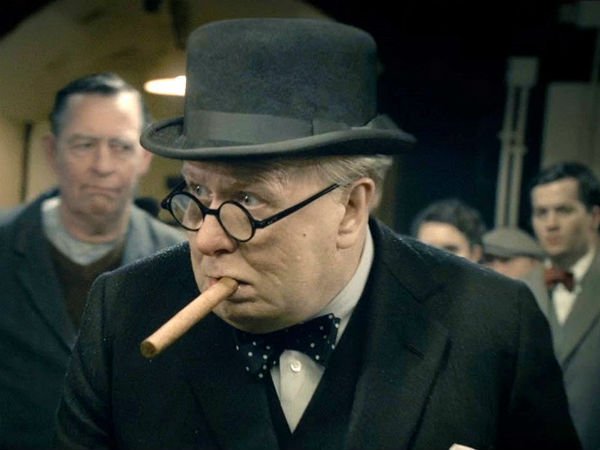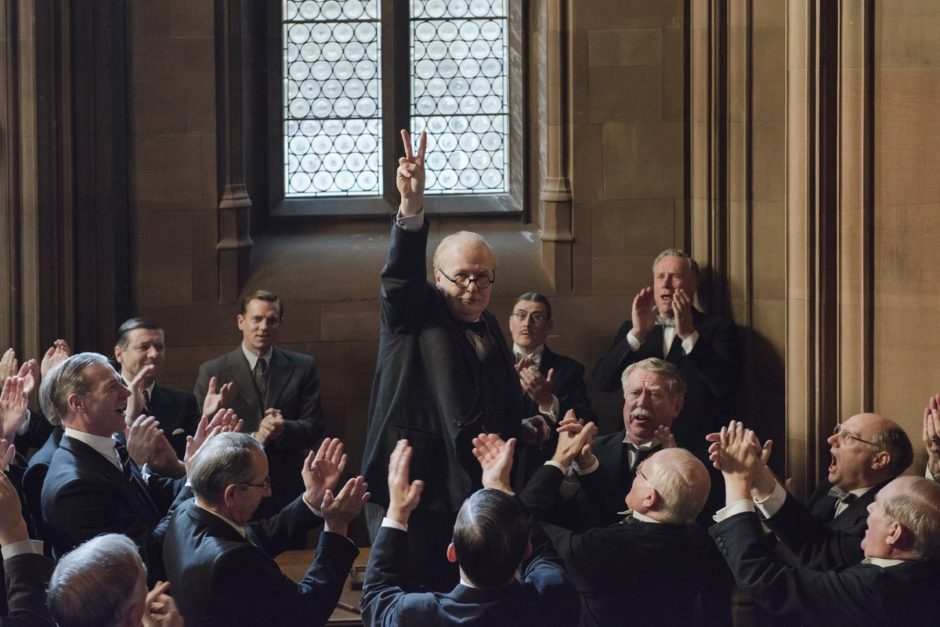Britain was in the throes of a crisis in May 1940. The prime minister, Neville Chamberlain, had stepped aside, Parliament having lost confidence in his leadership. Germany was on the ascendancy, having annexed Austria and the Sudetenland, recaptured Memmel, occupied Poland and invaded Norway, Luxembourg, Belgium, Holland and France.
At that fraught moment, when the fate of Europe hung in the balance, Winston Churchill, First Lord of the Admiralty, succeeded Chamberlain, who had been led to believe by Adolf Hitler that Germany sought peace.

Joe Wright’s splendid new film, Darkest Hour, begins on a placid note as Churchill (Gary Oldman) waits to be appointed as his successor. A cigar in hand, and wearing a nightgown, the irascible, unkempt, roly-poly politician sits on his bed, taking a brief call from a foreign diplomat and dictating a speech to his endlessly patient personal secretary, Elizabeth Layton (Lily James).
The movie has modest ambitions. Instead of charting Churchill’s tumultuous tenure as prime minister from 1940 to 1945, it focuses on his first month in office, when Churchill was confronted by a series of formidable challenges. He had to summon up the strength and courage to prepare himself for this onerous job. He had to fend off criticism from rivals. He had to decide whether to engage Germany in peace talks. He had to make a life-and-death decision about the fate of the German-besieged British Expeditionary Force in Dunkirk, France.
As Churchill prepares for an audience with the imperious King George VI (Ben Mendelsohn), his wise and practical wife, Clementine (Kristin Scott Thomas), tries to strengthen his resolve. Churchill knows he will be tested to the limit. As Sir Anthony Eden, the foreign minister, says, “You have an enormous task ahead of you.”

Oldman, a British actor, delivers a superb performance as Churchill. At once rude and polite, self- confident and meek, Churchill is a force to be reckoned with as he goes through his frenetic paces.
In his first speech to the House of Commons, he claims that Britain will win the war, come what may. The naysayers in his cabinet are skeptical. “He stands for one thing: himself,” a critic complains. Still others, like the appeaser Lord Halifax (Stephen Dillane), seek talks with Germany in the hope of sparing Europe from further destruction. “You can’t reason with a tiger,” exclaims Churchill, referring to Hitler.
Churchill, in his first radio address, expresses “invincible confidence” that Britain will prevail. Yet he tells Clementine that the allies are in “full retreat.” Sixty British and French divisions have been encircled by the Wehrmacht in France and are being pushed toward the sea.
When this news reaches Lord Halifax, he recommends peace negations with Germany mediated by its ally, Italy. Churchill proposes a different strategy — the evacuation of British and French troops from Dunkirk. The navy is skeptical of Churchill’s plan to spirit them to safety by means of a flotilla of civilian boats.
In a stark scene illustrative of Britain’s plight, Churchill nervously asks U.S. President Franklin Roosevelt for military supplies. The conversation doesn’t go well. Standing on technicalities, Roosevelt is loath to violate the Neutrality Act. As pressure mounts on Churchill to do something, his generals warn him of an imminent German invasion of Britain. Then, in a volte-face, George VI assures him he has his undying support.

Virtually all the scenes in Darkest Hour can be authenticated. But in an imaginary scene during which Churchill rides the subway and mingles with working-class passengers to gauge their views of his handling of the war, Wright fiddles with reality. This set piece confirms Churchill’s assumption that the British people will not submit to Nazi tyranny. Their refusal to kowtow to the enemy cements his decision to forego talks with Germany.
Buoyed by their defiance, he delivers one of his most famous wartime speeches. Promising to defend the British isles at whatever cost, he pledges never to surrender to Germany. As one of his opponents aptly observes, Churchill “mobilized the English language and sent it into battle.”
